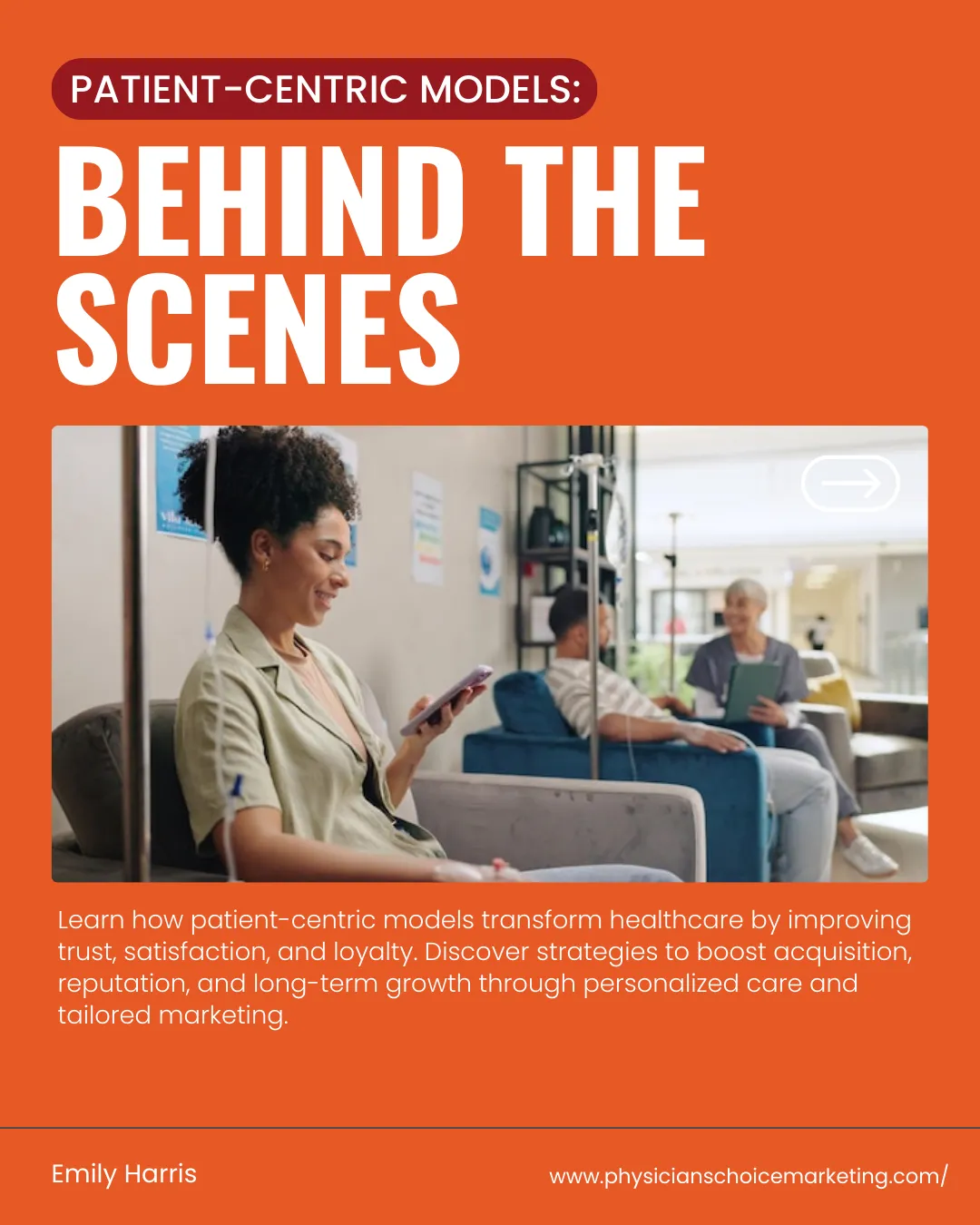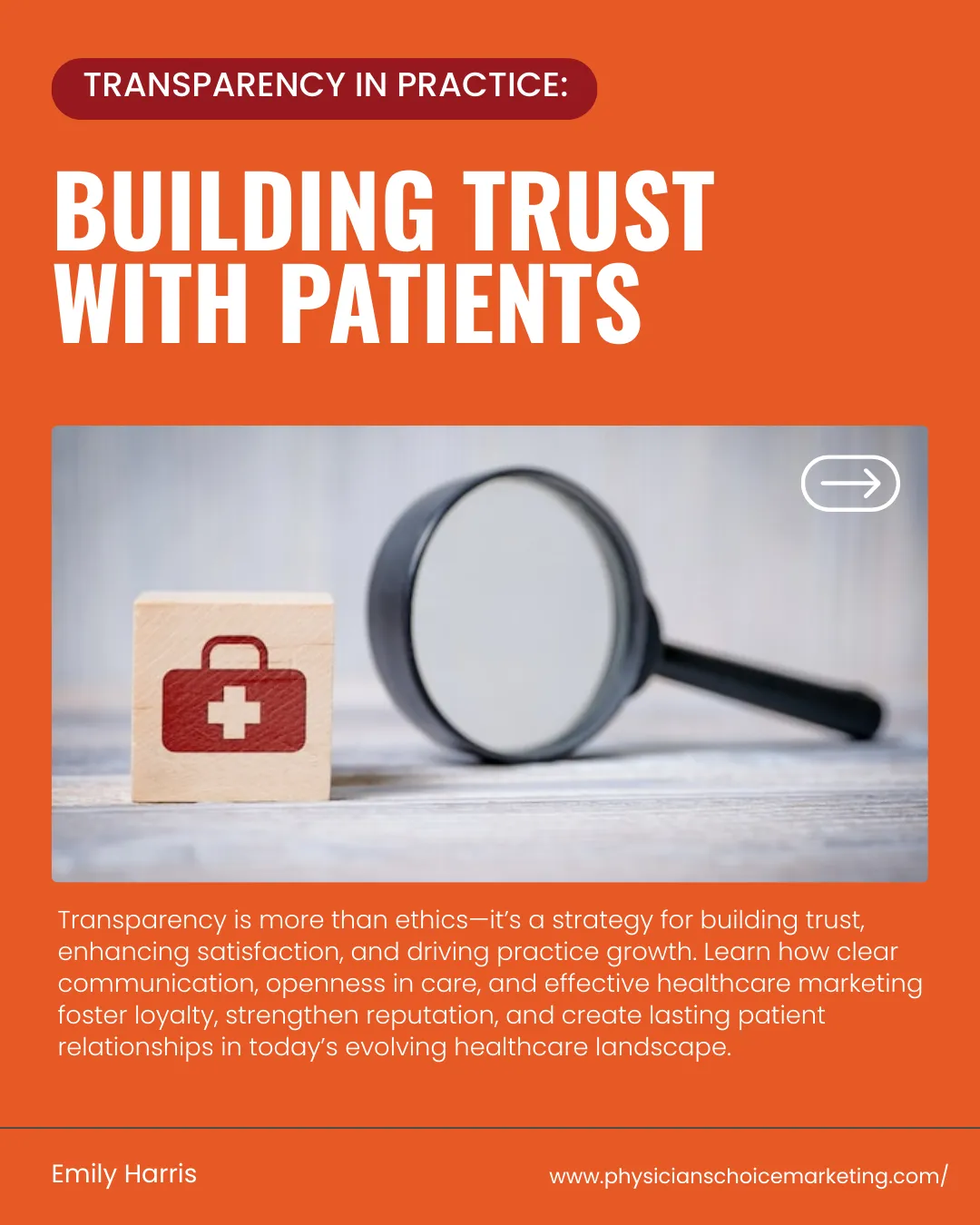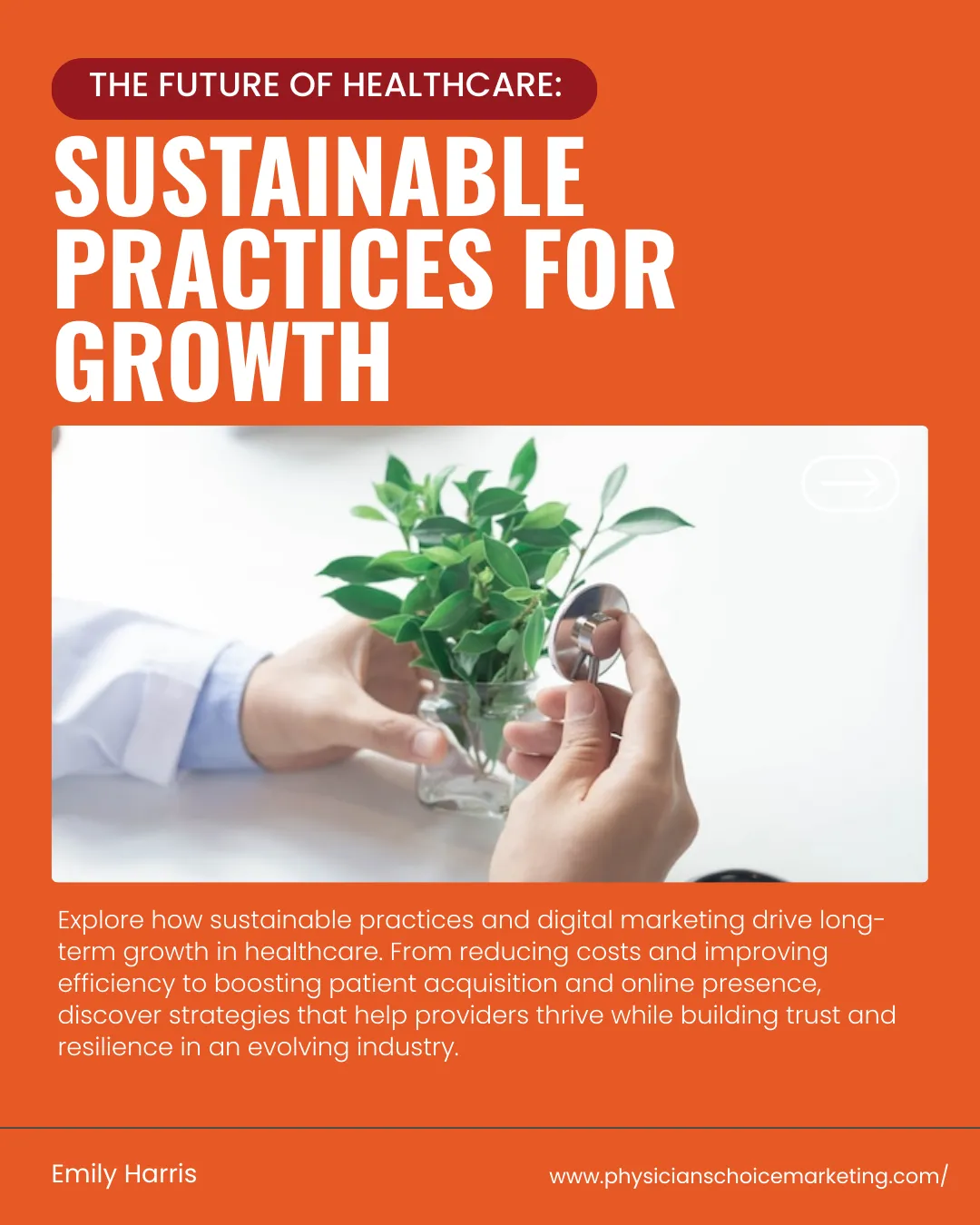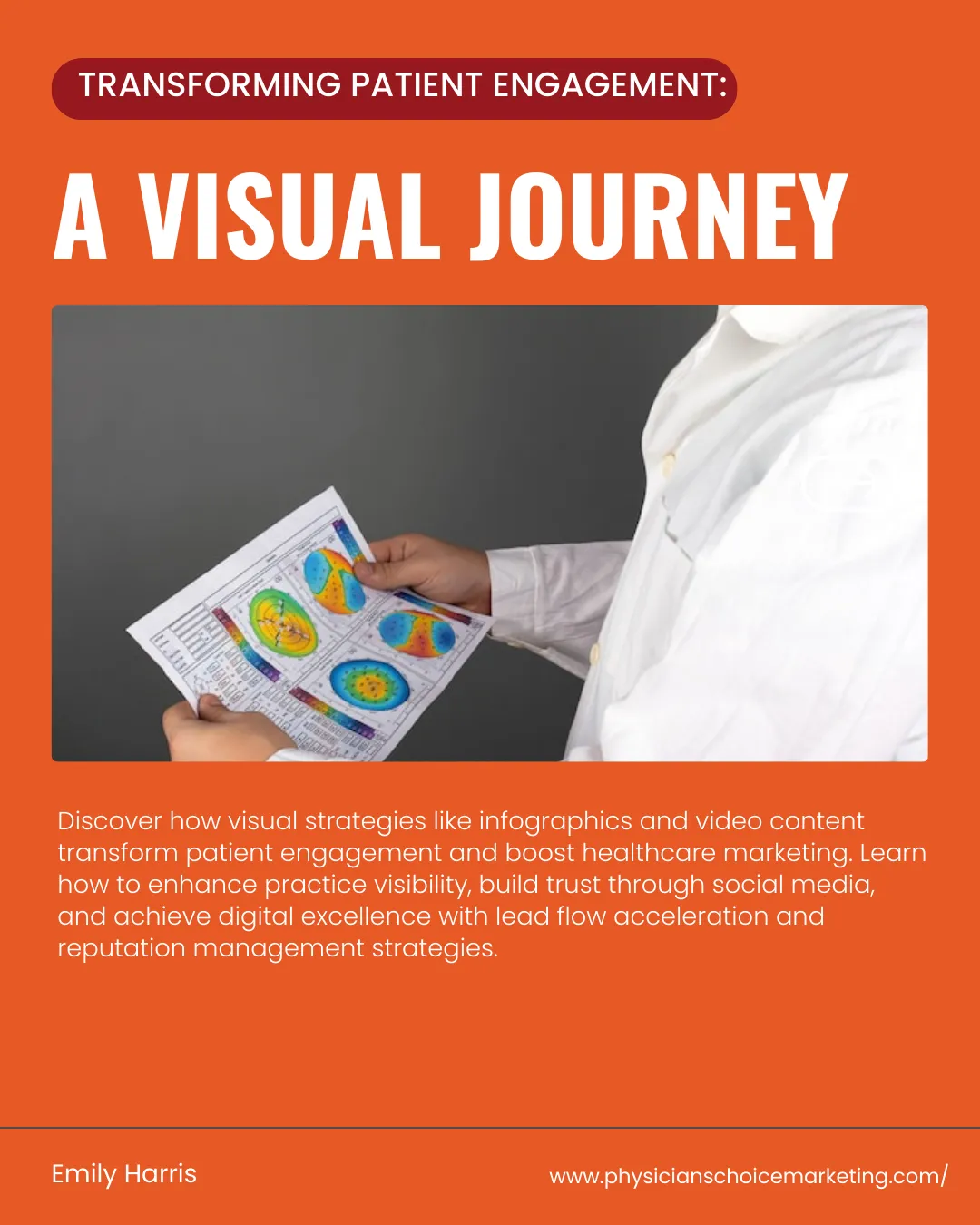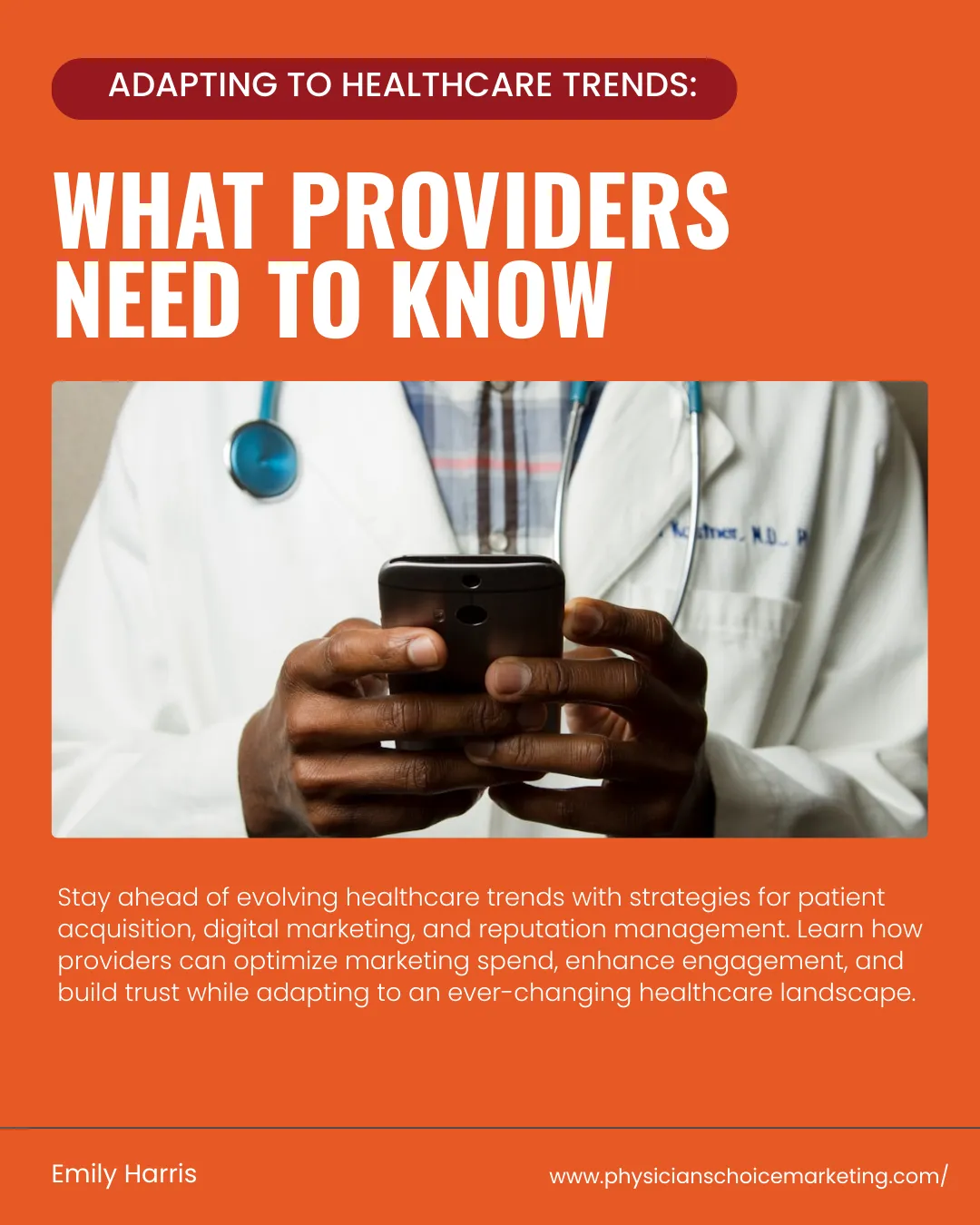Adapting to Healthcare Trends: What Providers Need to Know
Navigating the intricate landscape of healthcare trends is crucial for providers aiming to enhance patient acquisition and engagement. As healthcare marketing strategies rapidly evolve, it's essential for healthcare companies, physicians, and private practices to stay informed and agile. Digital healthcare marketing offers unique opportunities to connect with patients, improve online reputation, and optimize marketing spend. In this post, we will explore practical strategies that healthcare providers can implement to adapt effectively to these trends. Contact us to learn how Physician's Choice Marketing Group can support your practice in achieving these goals. For more information, visit this link.
Understanding Healthcare Marketing Trends

To keep pace with the evolving healthcare industry, understanding current trends in marketing is crucial. From patient acquisition strategies to digital innovations, healthcare providers must adapt their approaches to remain competitive and effective.
Current Patient Acquisition Strategies
Patient acquisition is a focal point for healthcare providers aiming to grow their practice. Traditional methods like referrals and local advertising remain relevant, but digital strategies are increasingly vital.
1. Optimize your website to ensure it is mobile-friendly and easy to navigate.
2. Leverage social media to engage with potential patients through informative content.
3. Invest in SEO to improve your practice’s visibility on search engines.
For example, a clinic increased new patient appointments by 20% by enhancing their website's user experience and implementing targeted social media campaigns. By focusing on the patient's journey from search to booking, they maximized their outreach.
Statistics show that 70% of patients perform online research before booking an appointment, highlighting the importance of a robust digital presence. Explore more strategies at this link.
Effective Digital Healthcare Marketing
Digital healthcare marketing encompasses various strategies to reach and engage patients online. Email marketing and content marketing are particularly effective.
• Email marketing allows personalized communication with potential and existing patients.
• Content marketing involves creating valuable content, such as blog posts and videos, to educate and attract patients.
A real-world example is a private practice that implemented a monthly newsletter. It provided health tips and practice updates, resulting in a 15% increase in patient engagement.
Case Study Takeaways:
• Regular content updates keep your audience informed and engaged.
• Personalized emails enhance patient relations and retention.
Visit this link for more on digital marketing trends.
Enhancing Patient Engagement

Enhancing engagement involves building a strong connection with patients. This not only improves care but also encourages loyalty and referrals.
Building Online Reputation
A strong online reputation is essential for healthcare providers. Patient reviews and testimonials significantly impact potential patients' decisions.
• Encourage satisfied patients to leave positive reviews online.
• Respond promptly and professionally to negative feedback to demonstrate commitment to patient satisfaction.
Quote: "A single negative review can deter 70% of potential patients," emphasizes the importance of managing online reputation.
A healthcare group that prioritized online feedback saw a 30% increase in patient inquiries. This underscores the power of a positive online image. Visit this link for more insights on healthcare staffing trends.
Optimizing Marketing Spend
Optimizing marketing spend ensures that resources are used effectively. Data analysis and budget allocation are key components.
Steps to Optimize Spend:
1. Identify target demographics to focus resources effectively.
2. Analyze campaign performance to understand what works.
3. Adjust budgets based on data insights.
A practice that reallocated funds from traditional advertising to social media saw a significant return on investment. By focusing on high-performing channels, they maximized their marketing spend.
Statistics: Practices that regularly evaluate their marketing strategies see a 25% higher return on investment. For more information, visit this link.
Tailored Solutions for Providers

Tailored marketing solutions are vital for addressing the unique needs of each healthcare provider. Custom plans can significantly impact patient acquisition and engagement.
Custom Marketing Plans
Custom marketing plans are designed to meet the specific needs of a healthcare practice. By aligning marketing efforts with individual goals, practices can achieve better outcomes.
• Assess your practice’s goals to determine marketing priorities.
• Develop a plan that incorporates both traditional and digital methods.
• Track progress to ensure the plan remains effective.
A clinic that implemented a customized marketing plan saw a 50% increase in new patient leads. This approach proved to be both effective and efficient.
Actionable Advice:
• Regularly review and adjust your marketing plan.
• Engage with marketing experts to gain new insights.
Learn more about tailored solutions at this link.
Partnering with Physician's Choice
Partnering with a specialized marketing group can provide expert guidance and support. Physician's Choice Marketing Group offers services tailored to healthcare providers.
Benefits of Partnering:
• Access to industry-specific marketing expertise.
• Customized strategies for patient acquisition and engagement.
• Ongoing support and performance analysis.
A practice that partnered with Physician's Choice reported improved patient engagement and acquisition rates. The collaboration allowed them to focus on patient care while benefiting from expert marketing strategies.
Key Takeaways:
• Expert partnerships can enhance marketing effectiveness.
• Tailored support helps achieve practice-specific goals.
For more on partnering opportunities, explore this link.

Insights, trends, and strategies to help physicians grow their practice with confidence.

Innovation
Fresh, creative solutions.

Integrity
Honesty and transparency.

Excellence
Top-notch services.

FOLLOW US
COMPANY
CUSTOMER CARE
LEGAL
Copyright 2026. Physicians Choice Marketing Group®. All Rights Reserved.




